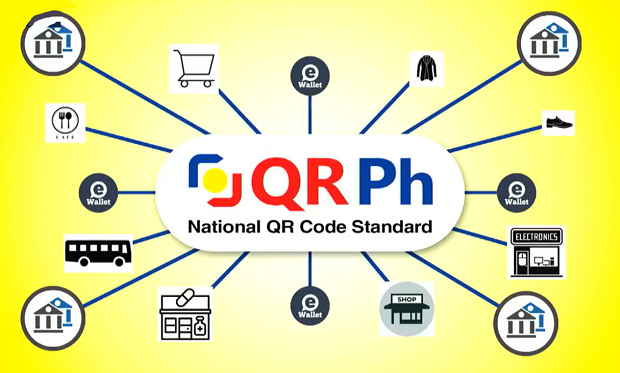
How AI Can Enhance Project Manager Productivity
How AI Can Enhance Project Manager Productivity
Project management is a field that requires a balance of strategic planning, coordination, and execution. It’s a role that demands both a high-level overview and attention to detail. With the advent of Artificial Intelligence (AI), the project management landscape is undergoing a transformation. AI is not just a tool for automating tasks; it is an enabler that can significantly enhance a project manager’s productivity. This article explores how AI can be leveraged to improve productivity across various facets of project management.
1. Automating Routine Tasks
One of the most immediate benefits of AI in project management is its ability to automate routine and repetitive tasks. These tasks, such as scheduling meetings, updating task statuses, sending reminders, and generating reports, can consume a significant amount of a project manager’s time. AI-driven tools can handle these tasks efficiently, freeing up time for the project manager to focus on more strategic activities. For instance, AI-powered scheduling tools can automatically find optimal meeting times based on participants’ availability, cutting down on back-and-forth communications.
2. Enhanced Decision-Making with Predictive Analytics
AI’s ability to process vast amounts of data and identify patterns can significantly enhance decision-making. Predictive analytics, powered by AI, can provide project managers with insights into potential risks, resource utilization, and project timelines. For example, by analyzing historical data from past projects, AI can forecast potential delays or budget overruns and suggest proactive measures. This allows project managers to make informed decisions, reducing the likelihood of costly errors and improving overall project outcomes.
3. Improved Risk Management
Risk management is a critical component of project management. Traditionally, identifying and mitigating risks has relied heavily on a project manager’s experience and intuition. However, AI can take risk management to the next level by continuously monitoring project data and identifying risks in real-time. AI algorithms can assess various risk factors, such as changes in scope, resource constraints, or external market conditions, and alert project managers to potential issues before they escalate. This proactive approach to risk management can lead to more successful project delivery.
4. Resource Optimization
AI can also play a crucial role in optimizing the use of resources in a project. By analyzing data on team members’ skills, workloads, and availability, AI can suggest the most efficient allocation of resources. This not only helps in balancing workloads but also ensures that the right people are assigned to the right tasks at the right time. Furthermore, AI can predict when resources might become overburdened and recommend adjustments to prevent burnout, leading to a more motivated and productive team.
5. Streamlining Communication and Collaboration
Effective communication and collaboration are vital for project success. AI can enhance these aspects by providing tools that facilitate better interaction among team members. For instance, AI-driven chatbots can answer common queries, provide project updates, and even help with document management. These chatbots can work 24/7, ensuring that team members have access to the information they need at any time. Additionally, AI can analyze communication patterns to identify potential bottlenecks or misunderstandings, allowing project managers to address them before they impact the project.
6. Real-Time Project Monitoring and Reporting
Keeping track of a project’s progress and reporting it to stakeholders is an ongoing responsibility for project managers. AI can automate real-time project monitoring by integrating with project management software and tools. AI can track key performance indicators (KPIs), monitor project milestones, and provide real-time dashboards that give a clear view of the project’s status. This continuous monitoring allows project managers to identify issues early and take corrective action promptly. Additionally, AI can automate the generation of reports, providing stakeholders with up-to-date information without the need for manual input.
7. Enhancing Client and Stakeholder Management
Managing client and stakeholder expectations is another area where AI can be highly beneficial. AI-powered tools can analyze client communications, track sentiment, and predict potential concerns or dissatisfaction. By providing project managers with these insights, AI enables them to proactively address issues, thereby improving client satisfaction and strengthening relationships. Additionally, AI can help in customizing project updates for different stakeholders, ensuring that the information is relevant and tailored to their interests.
8. Facilitating Continuous Learning and Improvement
AI can also contribute to continuous learning and improvement within project management. By analyzing past projects, AI can identify patterns of success and failure, providing valuable lessons that can be applied to future projects. Additionally, AI-driven tools can offer personalized training and development resources for project managers and their teams, helping them to continuously improve their skills and adapt to new challenges.
Conclusion
The integration of AI into project management is not just about automating tasks; it’s about enhancing the overall productivity and effectiveness of project managers. AI offers powerful tools that can transform how projects are planned, executed, and monitored. From automating routine tasks to enhancing decision-making, optimizing resources, and improving communication, AI has the potential to significantly boost the productivity of project managers. As AI technology continues to evolve, its role in project management is likely to expand, offering even more opportunities for project managers to deliver successful outcomes in an increasingly complex and dynamic environment.
Embracing AI in project management is no longer a futuristic concept; it’s a present-day reality that can provide a competitive edge. For seasoned project managers, leveraging AI is not just about staying relevant in the industry, but also about unlocking new levels of productivity and achieving greater success in their projects.


